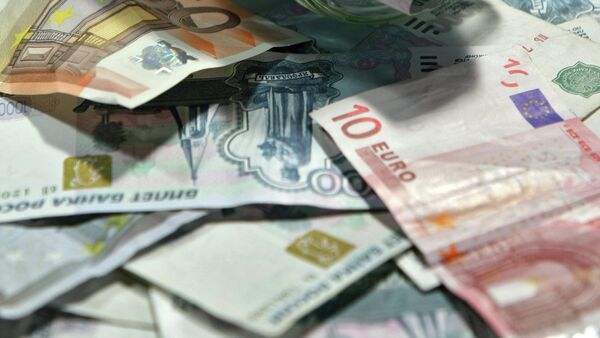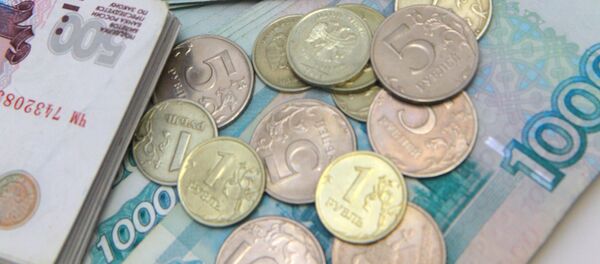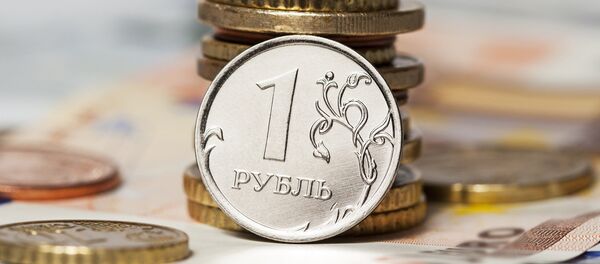MOSCOW, December 16 (Sputnik), Daria Chernyshova — With the drastic devaluation of the ruble and the Central Bank’s lifting of the base interest rate from 10.5 to 17 percent on Tuesday, the Russian economy seems show signs of distress, but the current situation has nothing in common with the country’s 1998 default, experts told Sputnik news agency on Tuesday.
Mitch Feierstein, a hedge-fund manager and chief executive of the Glacier Environmental Fund Limited, agreed by stressing that despite the parallels to 1998, Russia’s credit situation is in much better shape now.
On the currency exchange market, the ruble nosedived on Tuesday, trading at 80 rubles to the dollar and 100 to the euro, losing 20 to 26 percent during the day on the trading floor.
The fall of the value of the ruble followed a decision by the Central Bank (CBR) to raise its key interest rate from 10.5 percent to 17 percent in the early hours of Tuesday. The rate hike is its largest single increase since the 1998 economic crisis.
The CBR explained that the decision is aimed at limiting substantially increased ruble depreciation risks and inflation risks. But Panelli warned that it will not support the ruble, while weighing on the economy even more. She predicts as well that capital controls or the suspension of the free-floating exchange rate are very likely.
“Capital controls are likely the next move but it’s not a viable solution,” Mitch Feierstein agreed, underlining that the Central Banks need to be seen as taking action. “In my view, raising rates to 17% and/or wasting billions will not stop this decline. With a track record of zero for six rate increases working why should number seven work?”
Charles Roberston notes that the CBR did need to respond to the ruble sell off on Monday, now called “black Monday,” as the ruble suffered its sharpest decrease in value in 16 years.
“Unfortunately, the market’s reaction tells us that interest rate hikes alone were not enough,” Roberston told Sputnik.
Feierstein underlined that lower oil prices are damaging to the global economy in general with the potential to crush global GDP, destroy emerging market economies and bring about credit defaults between corporates and nations such as Venezuela.
In 1998, Russia was hit by a financial crisis that resulted in the Russian government and the CBR devaluing the ruble and defaulting on its debt.




